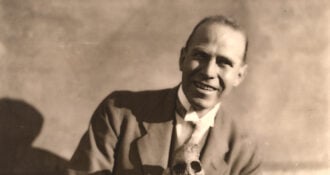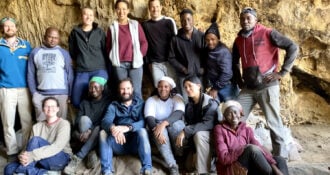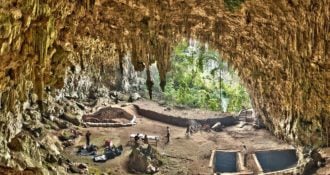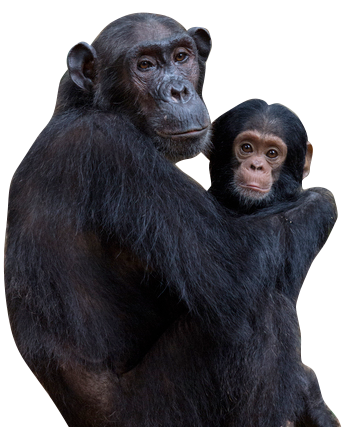In this never-before-released archival lecture from 1974, anthropologist Margaret Mead discusses the lives of women from prehistoric through modern times.
The Leakey Foundation is 50 years old this year, and we’re celebrating this milestone by sharing rare, previously unreleased lectures from the Foundation’s archive. These talks are like a time capsule that lets you hear from scientists in their own words and in their own voices – as they were making the discoveries that made them famous.
The third lecture in this “From the Archive” series is by Margaret Mead, the world famous cultural anthropologist and author.
Margaret Mead was born in 1901, and she had a long and distinguished career as an anthropologist. She served as president of the American Anthropological Association and the American Association for the Advancement of Science. Among other academic appointments, she was a curator of anthropology at the American Museum of Natural History in New York City, where she worked from 1926 until her death in 1978. After her death, she was awarded the Presidential Medal of Freedom by President Jimmy Carter in 1979. This award is the highest civilian honor given by the United States government.
The citation on her award said – “Margaret Mead was both a student of civilization and an exemplar of it. To a public of millions, she brought the central insight of cultural anthropology: That varying cultural patterns express an underlying human unity. She mastered her discipline, but she also transcended it. Intrepid, independent, plain-spoken, fearless, she remains a model for the young and a teacher from whom all may learn.”
Margaret Mead’s Leakey Foundation lecture entitled “Women – Primitive and Modern” was recorded in Pasadena, California, in 1974.
https://radiopublic.com/origin-stories-6VPVbG/ep/s1!6db41







Comments 0